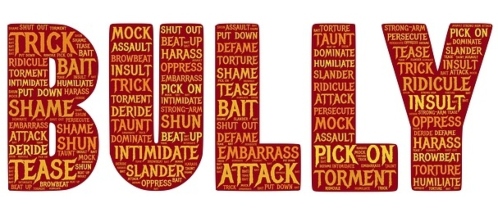Signs of Obsessive-Compulsive Disorder: Does My Child Have OCD?
What are the signs of obsessive-compulsive disorder? What can I do about it if my child has OCD?
These are some of the questions I will answer in this article. I want to give parents and teachers a greater understanding of OCD and why children with this condition act out. The more we understand our kids, the more we can help them.
Aaron's Behavior
 Photo by Alexander Koch
Photo by Alexander KochBefore anyone knew what was happening, “Aaron” dunked his hand into the turkey and gravy that Mom had just prepared for Thanksgiving dinner. Mom was upset, but tried to stay calm and clean up the mess in time for their special meal.
Mom would later find Aaron dunking his hand into prepared food at the grocery store and in other places. Sometimes he would throw dishes on the tile floor, shattering them into a million pieces.
It was only later that Mom learned that Aaron was suffering from obsessive-compulsive disorder.
What is Obsessive-Compulsive Disorder?
Obsessive-compulsive disorder (OCD) is a condition in which the person has intrusive, unwanted, or disturbing thoughts that can cause a lot of anxiety, fear and discomfort. These thoughts are accompanied by a temptation, or compulsion, to do the thing they are fearful or anxious about.
OCD is no fun for parents who have to deal with the behaviors.
But it’s crucial to understand that it’s no fun for the children who suffer from this condition. It can sometimes seem like a nightmare.
Do These Kids Want to Misbehave?
 Graphic by John Hain
Graphic by John HainOCD is very different from other behavioral problems. A lot of typical kids act out because they want something, either to test Mom and Dad or their teachers, or because they want something else.
But a child with OCD is tempted to do the very thing they don’t want to do. In severe cases, they may be terrified.
Jerome Bubrick, Ph.D., Director of the Intensive OCD Program at the Child Mind Institute has likened OCD to “a bully in your brain.” 1
It’s like a bully who comes to torment your child to do something they want very much not to do. But they think if they just give in to the obsession, it will go away, along with the fear and anxiety.
It might go away for a while, but if they give in and carry out the compulsion, the bully will only come back, like a real bully who comes back because he got his way before.
What Are the Signs of Obsessive-Compulsive Disorder?
I thought it might be helpful to give you some examples of what OCD looks like in action.
I base this information on the experiences of a close family member who has OCD. He is able to articulate clearly what he is experiencing and how he feels.
This is a world of information for parents with children who desperately need Mom, Dad and their teachers to understand why they act out.
Keep in mind these are not just thoughts that pass through their mind and then leave. They’re debilitating fears that can consume the person’s thoughts.
Below, I give examples of obsessions followed by a compulsion that they might be tempted to perform to get rid of the anxiety.
1. Fear that someone will break into the home.
Compulsion:
Excessive checking over and over again to make sure all doors and windows are locked every night.
In our experience, this is a mild form of OCD.
2. Fear of being contaminated by germs or dirt.
Compulsion:
Mild: Excessive hand-washing
Severe: Compulsion to thrust hands into the toilet.
3. Fear of breaking or ruining something.
Compulsion:
Mild: Repeated checking to make sure the car isn’t dented.
Severe: Throwing dishes on the floor to break them. Thrusting hands into a pot of soup.
4. Fear of running away or being lost from home.
Compulsion:
Mild: Reluctance to get out of the car while in a store parking lot for fear they will bolt.
Severe: Running out of the house and down the street.
5. Fear of hurting oneself or someone else.
Compulsion:
Mild: Fear of not giving in to a superstitious belief, such as avoiding stepping on the cracks of a sidewalk. They may fear what will happen to them if they step on the cracks.
Severe: Self-injurious or aggressive behavior, such as biting or kicking.
6. Fear of making a vow or fear of cursing someone.
Mild or severe: Compulsion to make a specific vow, especially to God. Temptation to curse someone.
OCD Awareness
Children with severe OCD probably can’t help it when their behavior is the result of a compulsion.
Parents who are unaware of this may be unknowingly increasing their child’s suffering. Can you imagine how Johnny would feel if, after biting his mother, no one understood that he desperately wanted not to hurt her?
The more we understand why our kids act out, the more we can help them. Coping with their condition will be a lot easier for them if they know Mom and Dad and their teachers realize where they’re coming from.
Cognitive Behavioral Therapy (CBT)
Although OCD is a terrible condition for many, help is available.
Cognitive Behavioral Therapy is widely recognized as an effective intervention for OCD. Dr. Bubrick revealed there are actual differences between the brains of people who have OCD and those who don’t, and that effective therapy actually changes the brain.
So, if your child or anyone else in your family suffers from OCD, there’s hope.
If your child’s condition is mild, you may feel there is not much need for therapy, but this would depend on each person’s situation. In severe cases, CBT can be of great help.
To learn more, visit the Child Mind Institute website here.
Disclaimer
The information contained in this article and on this website is not medical advice and should not be used as a substitute for seeing your own or your child's physician. You should always consult a medical doctor before considering any of the information on this website. It is highly recommended to visit a licensed physician regularly and follow their treatment plan for your child. If you have any specific questions about your child's health, see their physician or other healthcare provider. If you think your child might have any type of physical or medical condition, you should get help from your healthcare provider immediately. You should never delay, discontinue or disregard the medical treatment or advice from your own or your child's doctor as a result of anything contained on this website.
References
1 Bubrick, Jerome. "OCD: It's Like a Bully in Your Brain." Child Mind Institute, 19 August 2024, https://childmind.org/article/ocd-its-like-a-bully-in-your-brain/.
Related Pages
1. Autistic Behavior: How to Cope With and Possibly Correct It
2. Safety for Autism: Avoiding Danger
3. Autism Behaviors: Help Finding the Cause



New! Comments
Have your say about what you just read! Leave me a comment in the box below.